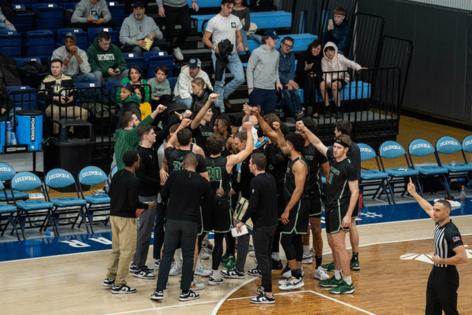Mike Bianchi: If college athletes become employees, then a bunch of them are going to get laid off
Published in Basketball
ORLANDO, Fla. — To all of those “exploited” college athletes and to the many critics of the NCAA who are lauding the recent landmark decision by the Dartmouth basketball team to unionize so they can be considered employees of the university, just remember this:
Be careful what you wish for.
You may think you are fighting for the future of college athletes everywhere, but more likely you will end up costing countless athletes a chance at a brighter future.
For most big corporations, paying your employees a good salary with benefits is a noble idea, but it doesn’t really work in the current business structure of college athletics. If college athletes want to be treated like other employees in the real world then they are in for a rude awakening.
The Dartmouth basketball team, for instance, has had 24 straight losing seasons, finished last in the Ivy League again this year and is a consistent money-loser for the school’s athletic program. In the real world, do you know what happens to the employees in the branch of a company that continually loses money and underperforms? Those employees get laid off and are out of work.
Likewise, this is what might happen to many of the non-revenue Olympic sports at colleges throughout the United States. If there comes a day when college athletic programs are responsible for paying all of their student-athletes then you know what’s going to happen, right? Athletic directors will start cutting and slashing programs like tennis, track, swimming and golf in order to make their budget.
Even if colleges end up having to pay only the athletes on their football and men’s basketball teams, which are the only sports on most campuses that turn a profit, even the largest athletic programs are going to have to drastically rework their budgets.
“That money [to pay players] is not currently available,” University of Florida athletic director Scott Stricklin says bluntly. “Something would have to give; whether it’s fewer people on staff, fewer services for our student-athletes or — what we don’t want to have happen but what some people envision — having fewer sports.”
Says UCF athletic director Terry Mohajir: “I’m very concerned about the collateral damage to the Olympic sports, if there’s a new revenue model in college athletics. I worry when we have to start making triage decisions on cost. I hope we can figure this out without eliminating sports and educational opportunities.”
Sadly, in today’s world, most of the discussion about college sports focuses on players jumping from school to school chasing NIL money while schools are jumping from conference to conference chasing TV money. Whatever happened to the true mission of college athletics — providing educational opportunities for kids who might not otherwise be able to afford it?
...continued
©2024 Orlando Sentinel. Visit orlandosentinel.com. Distributed by Tribune Content Agency, LLC.







Comments